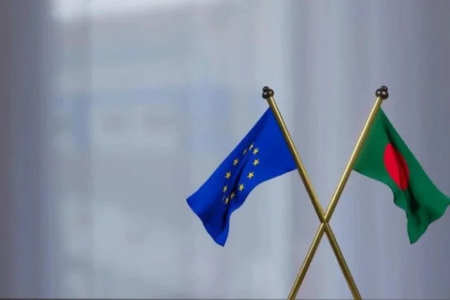Turkish business to direct large investments in Balkan states in 2015
YarnsandFibers News Bureau 2015-02-19 14:05:00 – IstanbulTurkish business community, united around the Confederation of business women and businessmen in Turkish industry has vowed substantial investments in textiles, energy, tourism, food industry in Macedonia, Bulgaria, Albania, Croatia and other Balkan countries in 2015, said Vice President of the Confederation Aljatin Bayraktar.
The Chair of the Confederation, Emine Atasoy, took part in talks with representatives from the Balkan states to discuss opportunities for facilitating Turkish investors and improving economic conditions.
Trade relations with the Balkan countries will be implemented in cooperation with the Turkish government, it is said in written statement of the Confederation.
Officials from several Balkan countries said that they are eager to work with Turkey to find new areas of co-operation that will strengthen regional economic ties.
Turkish investors are among the most preferred ones in the Balkans region, and they have already showed their good performance in various investment projects.
According to the latest data of Turkey's Economy Ministry, Turkish companies are currently conducting 12 projects in BiH with a total value of $564 million, while Turkey's direct foreign investment in the country is concentrated on the banking, education and airline sectors.
Economic relations between Serbia and Turkey have been growing steadily since September 2010, when the two countries signed a free trade agreement. Last year, the level of trade reached approximately $750 million, with a growth rate of 20 percent in comparison with 2012.
Filip Sanovic, economy advisor at Serbia's Consulate General in Istanbul, said that trade is getting more balanced, and the trade deficit on the Serbian side is narrowing, but there is still space for further progress.
The number of business forums and levels of businessman visits on both sides are promising the closer co-operation in the coming years. Still, there is a huge untapped potential for Turkish companies and their investments in Serbia, Sanovic said.
Political stability, geographic location, lower production and utilities costs, and an experienced labour force are the key factors for Turkish businessman to take Serbia into consideration as an investment point, Sanovic added.
Serbia's free trade agreement with customs union of the Russian Federation, Belarus and Kazakhstan, as well as the Central European Free Trade Agreement, can open doors to those markets for Turkey, Sanovic said, adding that experienced Turkish businessman can also help Serbia to increase its presence.
Sanovic said that the textile sector has become one of the highly productive areas of economic co-operation between the two countries. There are a few large projects of Turkish textile companies in Serbia in the final phase, and launching of production is expected to be in the spring. They are hoping that their good experience will lead the new wave of Turkish investments in Serbia, leading to increasing of co-operation and stability between two countries.
Last May, Turkey, Serbia and BiH established a Trilateral Trade Committee, aiming to promote foreign investment and co-operation opportunities among the three countries.
Romania is also hoping to attract more Turkish investors to increase already significant economic relations between the two nations.
During the recent visit of Romanian President Traian Basescu to Turkey on February 5th, Turkish President Abdullah Gul said the countries have been experiencing the greatest volume of trade throughout the Balkans.
Currently, the investments of Turkish companies in Romania amount to $5 billion and cover a wide range of sectors. Basescu met with the representatives of the business world as part of his program in Turkey.
Ramo Bralic, Montenegrin ambassador to Turkey, said that Turkey's leading companies have longstanding economic interests in his country and have benefitted from its low tax rates.
According to the World Bank's Southeast Europe Regular Economic report, presented in December, Montenegro's economy is expected to grow 2.5 percent in 2014.
Montenegro was recognised as a favourable investment destination for the Turkish capital as a connection and bridge point for further economic co-operation with the EU and CEFTA countries including Russia, with which it has preferences agreements, Bralic said.
Market Intelligence
Ask for free sample Report

experience
Customer Base
dedicated team
Countries Served Worldwide




![Freitag unveils new Mono[P6] circular backpack](https://www.yarnsandfibers.com/wp-content/uploads/2024/04/Freitag.jpg)




